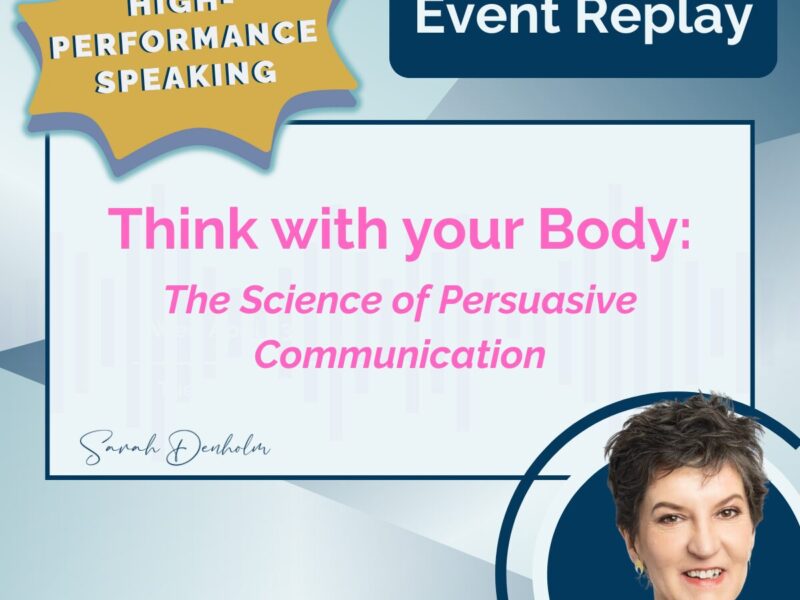
What do you believe about building confidence around your speaking skills? Here is what I’ve found to be true: confidence is simply the expectation of a positive outcome. There are all sorts of possible definitions of confidence, but I like this one; it’s clear, and boiled down to its essence. So how, you may be asking, do you build that expectation of a positive outcome? In 2 ways:
1. You take action in the outside world
2. You take care with your self-talk in the inner world
Let’s have a look at these 2 elements – which may be simple, but they aren’t easy – in more detail:
Take action in your outer world by doing these 2 things:
1. Start by making a list of areas where you do feel competent and able; any areas at all from your hobbies to your work life, whether that’s cooking, running or brain surgery. Write this list down (you can draw it as a colourful mind-map if you’re more of a creative or visual person, see examples of mind-mapping here). Then put the list/map somewhere you can see it, and look at it regularly, and especially before you do something related to your public speaking. This has been shown by psychologists to help boost your ability to take new actions in this area.
2. Then make the decision and do something in the real world to improve your speaking. Your goal here is to start building a store of successes. This can be on any level: from researching speaking skills online right up to picking up the phone and calling a speaking coach or booking into a class or course. Just do something, however small, that empowers you to feel that you taken a step towards your goal.
An important thing to remember as you take action, is to keep your expectations low in the short term; I’ve written before about the importance of where to set your expectations here. If you set the bar too high before you’ve properly started, it’s almost certain that you’ll get demoralized and downhearted, which is exactly what you don’t want to happen – especially if you’ve tried working on your speaking skills before and it hasn’t worked. Thinking about your expectations leads us into your inner world, so let’s move onto the other big factor in building your confidence: taking care with your self-talk.
Taking care of your inner world: self talk
How you talk to yourself really matters. We do it all day long, and our inner chat is frequently unhelpful, especially when we’re trying something new. We tie ourselves up in knots of perfectionism/negativity/pressure; it’s often a wonder that we achieve new things at all! But our ‘inner critic’ (or committee of critics!) is actually just trying to keep us safe from harm. It’s trying to get to us before the world does. So the key here is – don’t believe everything you hear. You can hear your warning negative voices and still take action. You can turn those voices around into a dialogue which is more helpful for you. It’s a choice. It may not feel that way when your critic is biting, but it is: you can choose a new way.
No matter how long you may have been speaking to yourself negatively about speaking in public, and no matter if you’ve tried to make changes before and they haven’t worked, your point of power is always right now. Now as I said at the beginning of this article, this isn’t easy, but it’s doable, and it’s vital, if you want to give yourself a real chance of success. Start by listening to what you tell yourself, and then start small, replacing negativity with a more encouraging, nurturing voice. Every single time you speak to yourself as you would to a friend or family member – or even pet – that you care about, you’ll be helping yourself to overcome previous limitations.
Give these ideas 1 or 2 weeks, with consistent small steps in both your inner and outer worlds, and you’ll really start to see positive shifts happening.




